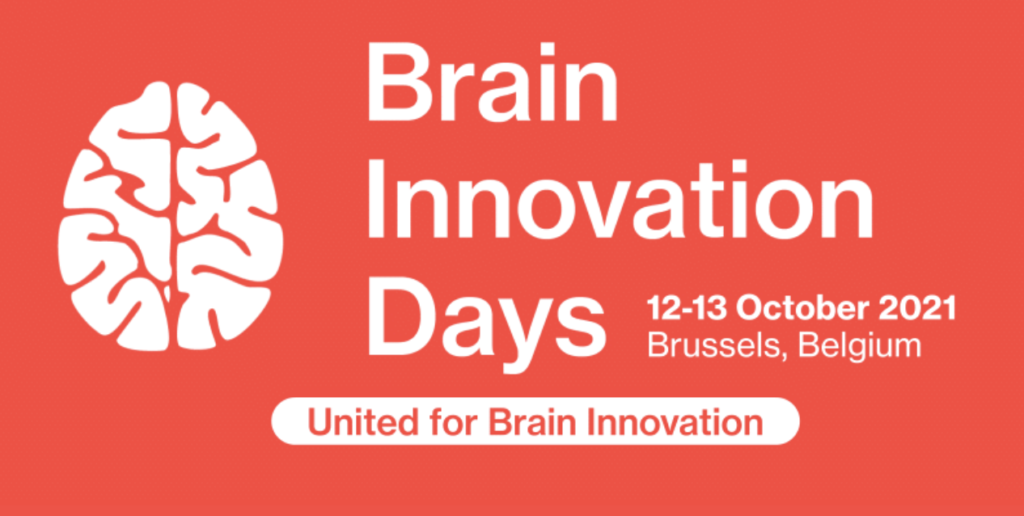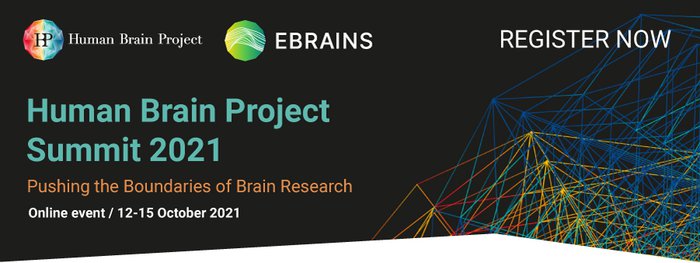

The European Brain Council and the EBRAINS Research Infrastructure held the first European Brain Summit on 12 October 2021 in Brussels, in conjunction with the Brain Innovation Days and Human Brain Project Summit.
This was a unique opportunity to explore the challenge of understanding the brain and the role that Europe should continue to play in this endeavour. High-level speakers and experts presented their vision of the future of European brain health research in the context of the European Health Union.
Our objective was to create a genuine momentum for scientific breakthroughs and policy advancement to the benefit of European citizens.
This unique meeting explored ways of advancing brain research through scientific collaborations, digital innovation, data management and patient centricity.
Prof Monica Di Luca
President, European Brain Council
“The European Brain Summit has the important goal to bring together many of the key players in the brain space to ensure that brain research receives the policy attention that it deserves and requires.”
Irene Norstedt
Director of the People Directorate, Directorate-General for Research and Innovation, European Commission
“We need to further strengthen brain research and we must make sure that stakeholders work together in a very well-coordinated manner.”
Maria Cristina Messa
Minister of University and Research, Italy
“The impact of brain studies in society extends beyond the purely scientific interest in achieving knowledge, as the alarm bells from brain-related diseases have reached such a level that it is unthinkable that each country can move independently of other partners along the lines of uncoordinated initiatives.”
Cristian Bușoi
Member of European Parliament (EPP, Romania)
“I would like to express a strong commitment to your efforts on behalf of myself, but I believe I can also speak on behalf of many colleagues from the European Parliament involved in the health policy area in [the support] of efforts to put brain health somewhere at the top of the European agenda.”
Claire Giry
François Jacq
Administrator General, French Alternative Energies and Atomic Energy Commission
“If you don’t bring people to work together, you don’t have anything. We must strengthen our European approach. If we want to negotiate with others, if we want to cooperate with others, we should be strong at the European level first. If we are strong, it is in my experience then, that the others will come to cooperate with you.”
Prof Philippe Amouyel
Chair, Executive Board, EU Joint Programme – Neurodegenerative Disease Research (JPND)
“The size of the challenge is so large that not one country is able to tackle it alone.”
Paweł Świeboda
Chief Executive Officer, EBRAINS AISBL, Director General, Human Brain Project
“We need to address the brain as a societal challenge.”
Prof Marlies Dorlöchter
Coordinator, ERA-NET NEURON
“We all have national strategies on brain research, but it is really important that we are talking about this, that we align our strategies and jointly support collaborative research in Europe and beyond. EBRA is a network of networks, so it takes us to another level of collaboration that is very important and gives us a platform to talk about our strategies and to jointly go on in the support of research.”
Hilary Sutcliffe
Director, Society Inside
“Looking at funding regimes. These sort of patient-centric practices need to be part of the question formulation right at the beginning; they need to be part of the funding calls, and they need to be designed into the calls.”
Annabel Descamps
Product Manager, icompanion
“We would love to see large scale analysis of data become a reality in Europe, to move faster towards effective treatments.”
Steven Vermeulen
Chief Infrastructure Officer of EBRAINS
“Let’s not just share data, let’s share access to tools for data.”
Joke Jaarsma
“The three most important elements in data sharing from the perspective of the patient community are privacy, informed consent and the validity of data.”

Prof Monica Di Luca
Immediate Past President, European Brain Council
“The European Brain Summit has the important goal to bring together many of the key players in the brain space to ensure that brain research receives the policy attention that it deserves and requires.”

Irene Norstedt
Director of the People Directorate, Directorate-General for Research and Innovation, European Commission
“We need to further strengthen brain research and we must make sure that stakeholders work together in a very well-coordinated manner.”

Maria Cristina Messa
Minister of University and Research, Italy
“The impact of brain studies in society extends beyond the purely scientific interest in achieving knowledge, as the alarm bells from brain-related diseases have reached such a level that it is unthinkable that each country can move independently of other partners along the lines of uncoordinated initiatives.”

Cristian Bușoi
Member of European Parliament (EPP, Romania)
“I would like to express a strong commitment to your efforts on behalf of myself, but I believe I can also speak on behalf of many colleagues from the European Parliament involved in the health policy area in [the support] of efforts to put brain health somewhere at the top of the European agenda.”

Claire Giry
Director General of Research and Innovation at the Ministry of Higher Education, Research and Innovation, France
“Today’s meeting strongly underlines the need and the interest to strongly support brain research. Brain diseases and their high burden on individual health and health systems are well known. The tools available to tackle this are mostly research related, which is why it is important to continue to work on these issues.”

François Jacq
Administrator General, French Alternative Energies and Atomic Energy Commission
“If you don’t bring people to work together, you don’t have anything. We must strengthen our European approach. If we want to negotiate with others, if we want to cooperate with others, we should be strong at the European level first. If we are strong, it is in my experience then, that the others will come to cooperate with you.”
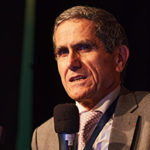
Prof Philippe Amouyel
Chair, Executive Board, EU Joint Programme – Neurodegenerative Disease Research (JPND)
“The size of the challenge is so large that not one country is able to tackle it alone.”

Paweł Świeboda
Chief Executive Officer, EBRAINS AISBL, Director General, Human Brain Project
“We need to address the brain as a societal challenge.”

Prof Marlies Dorlöchter
Coordinator, ERA-NET NEURON
“We all have national strategies on brain research, but it is really important that we are talking about this, that we align our strategies and jointly support collaborative research in Europe and beyond. EBRA is a network of networks, so it takes us to another level of collaboration that is very important and gives us a platform to talk about our strategies and to jointly go on in the support of research.”

Hilary Sutcliffe
Director, Society Inside
“Looking at funding regimes. These sort of patient-centric practices need to be part of the question formulation right at the beginning; they need to be part of the funding calls, and they need to be designed into the calls.”

Annabel Descamps
Product Manager, icompanion
“We would love to see large scale analysis of data become a reality in Europe, to move faster towards effective treatments.”
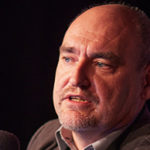
Steven Vermeulen
Chief Infrastructure Officer, EBRAINS
“Let’s not just share data, let’s share access to tools for data.”

Joke Jaarsma
President, European Federation of Neurological Associations and Treasurer, European Brain Council
“The three most important elements in data sharing from the perspective of the patient community are privacy, informed consent and the validity of data.”
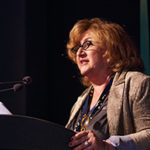
Monica di Luca
President of the European Brain Council
“The European Brain Summit has the important goal to bring together many of the key players in the brain space to ensure that brain research receives the policy attention that it deserves and requires.”
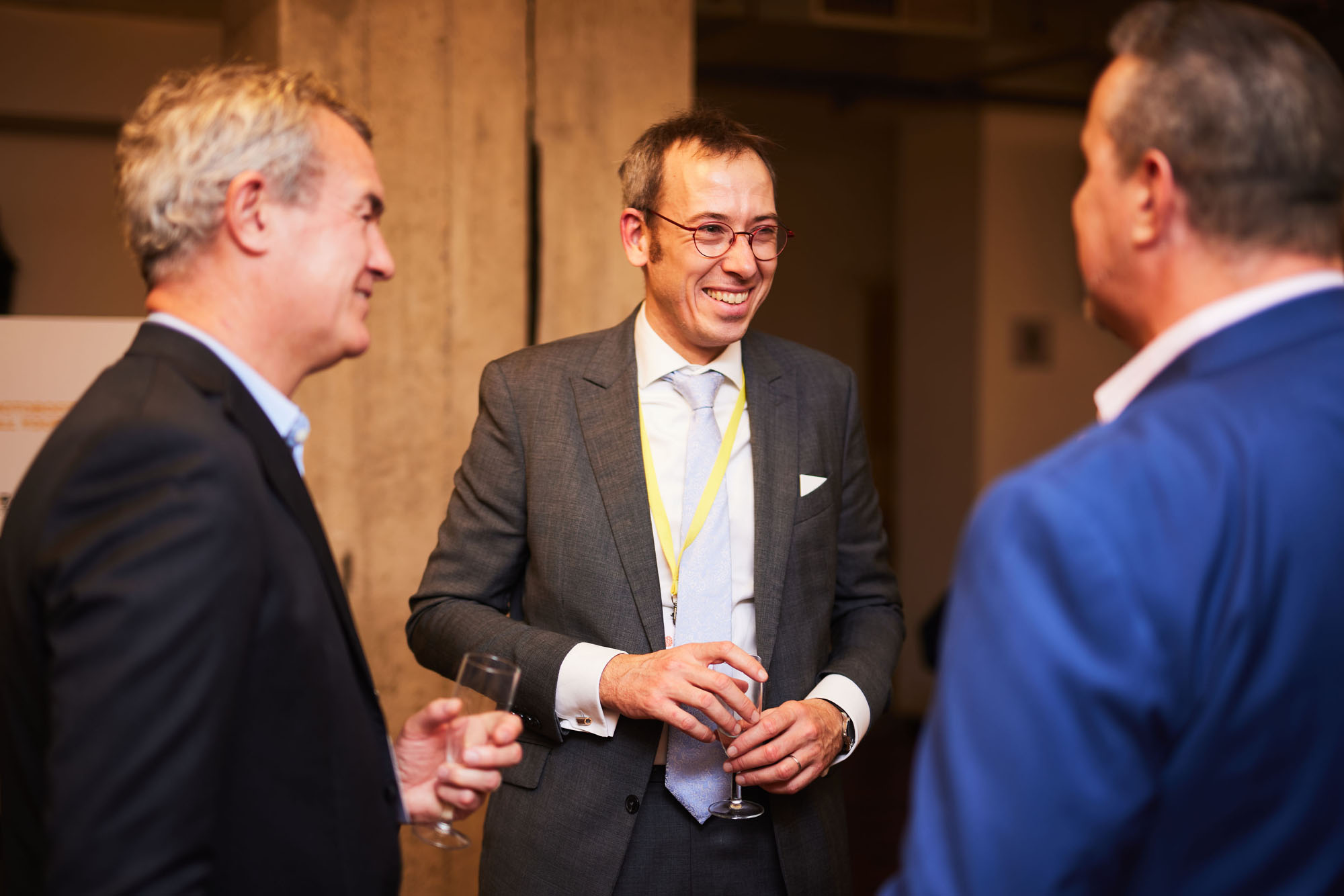
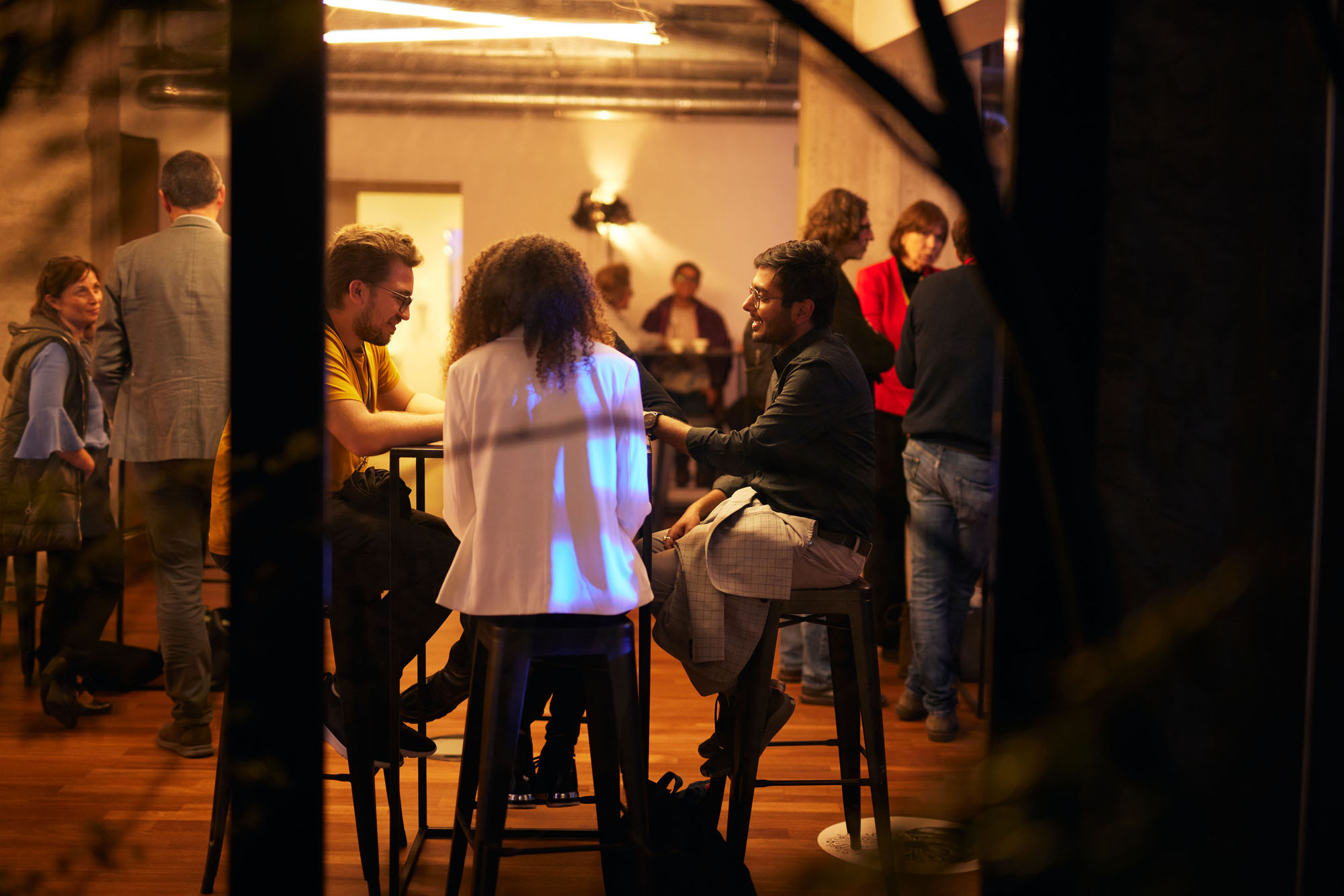
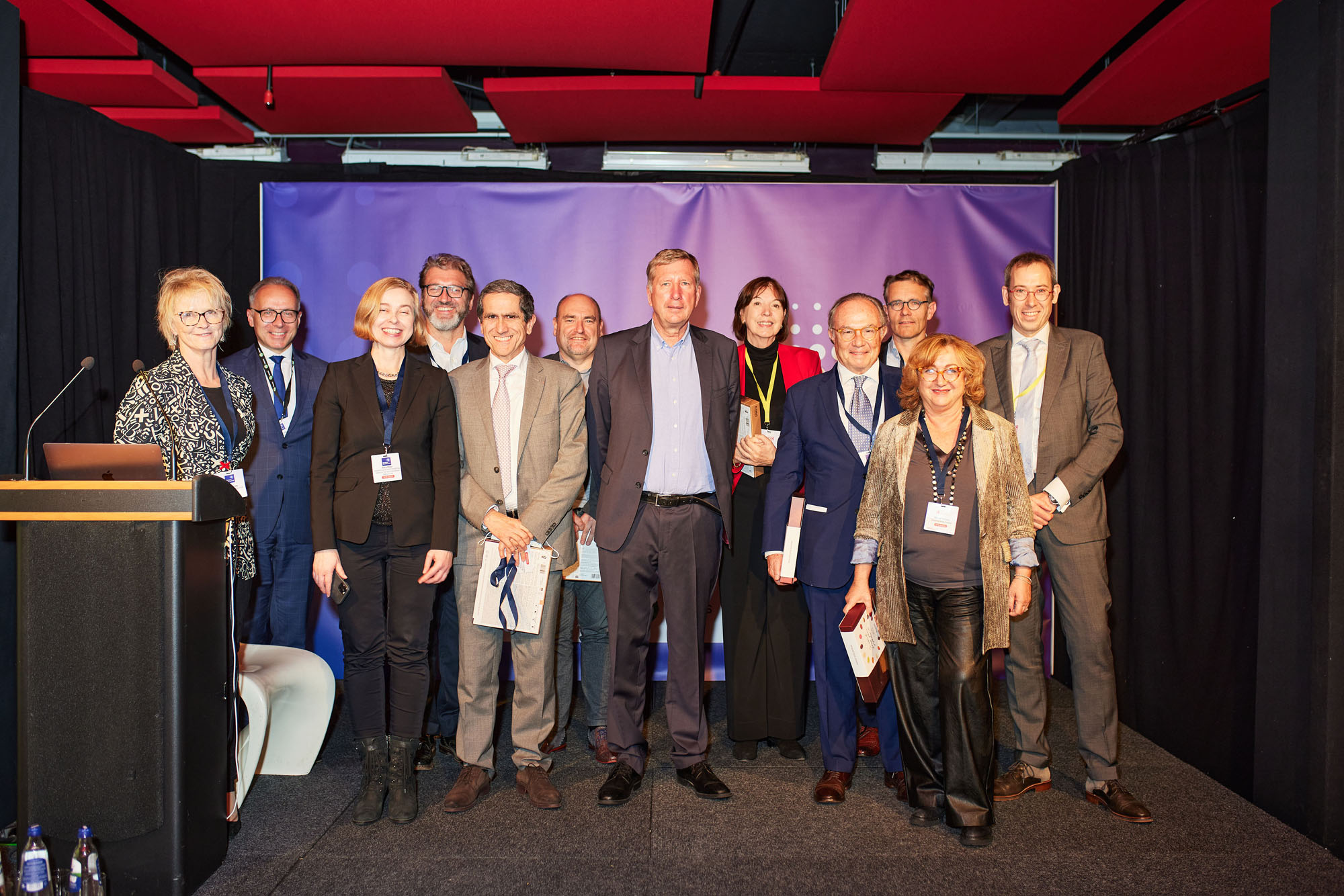
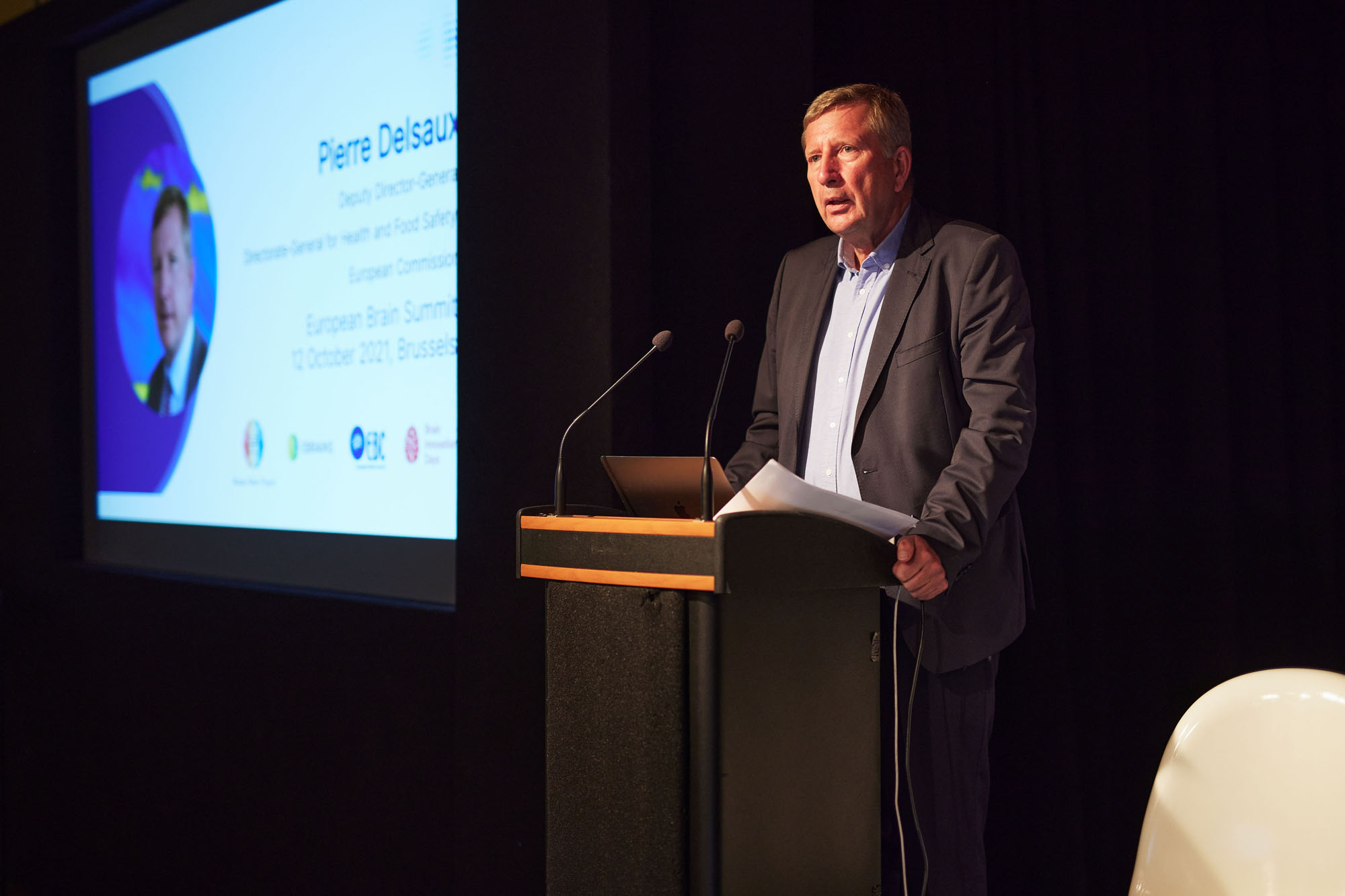
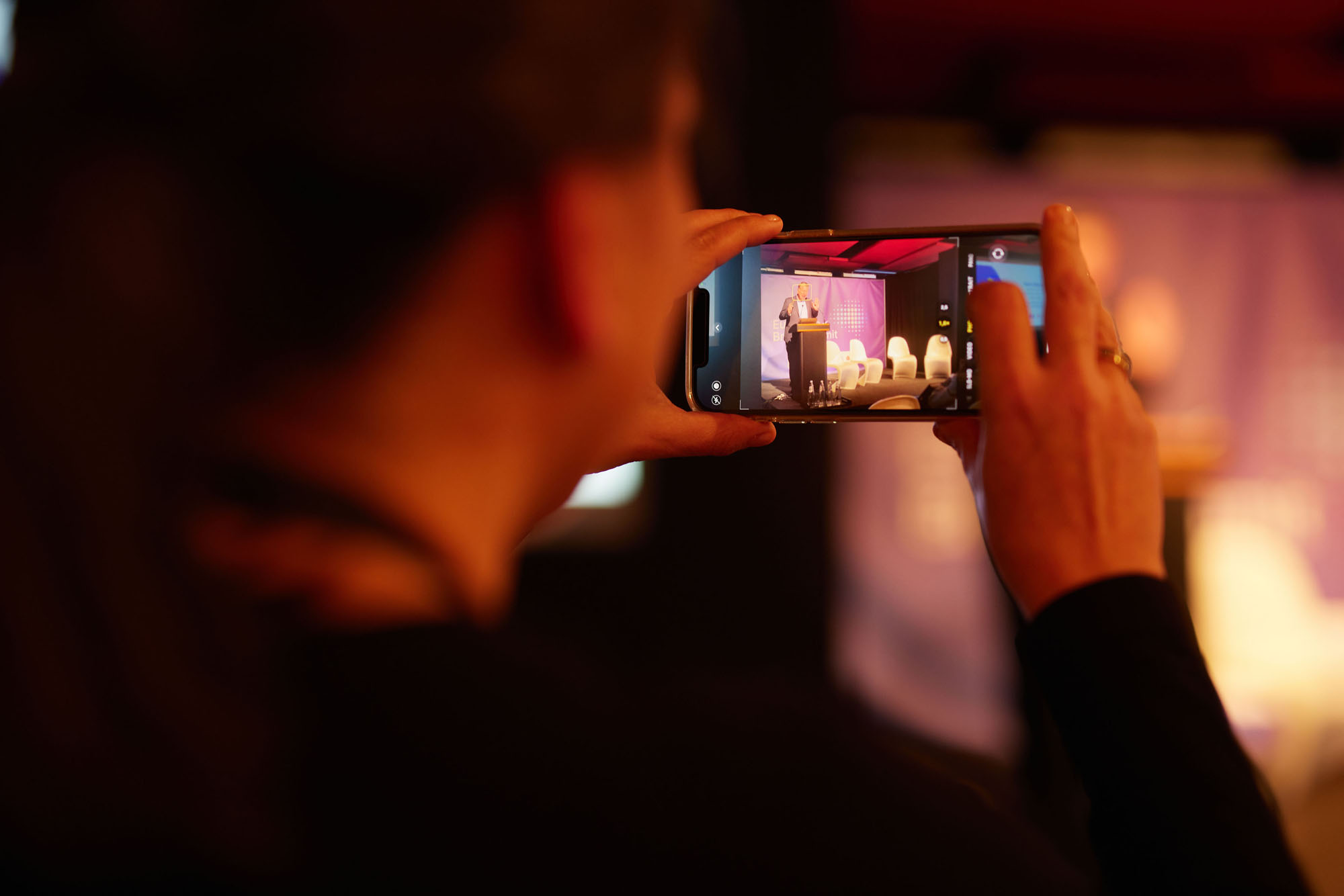
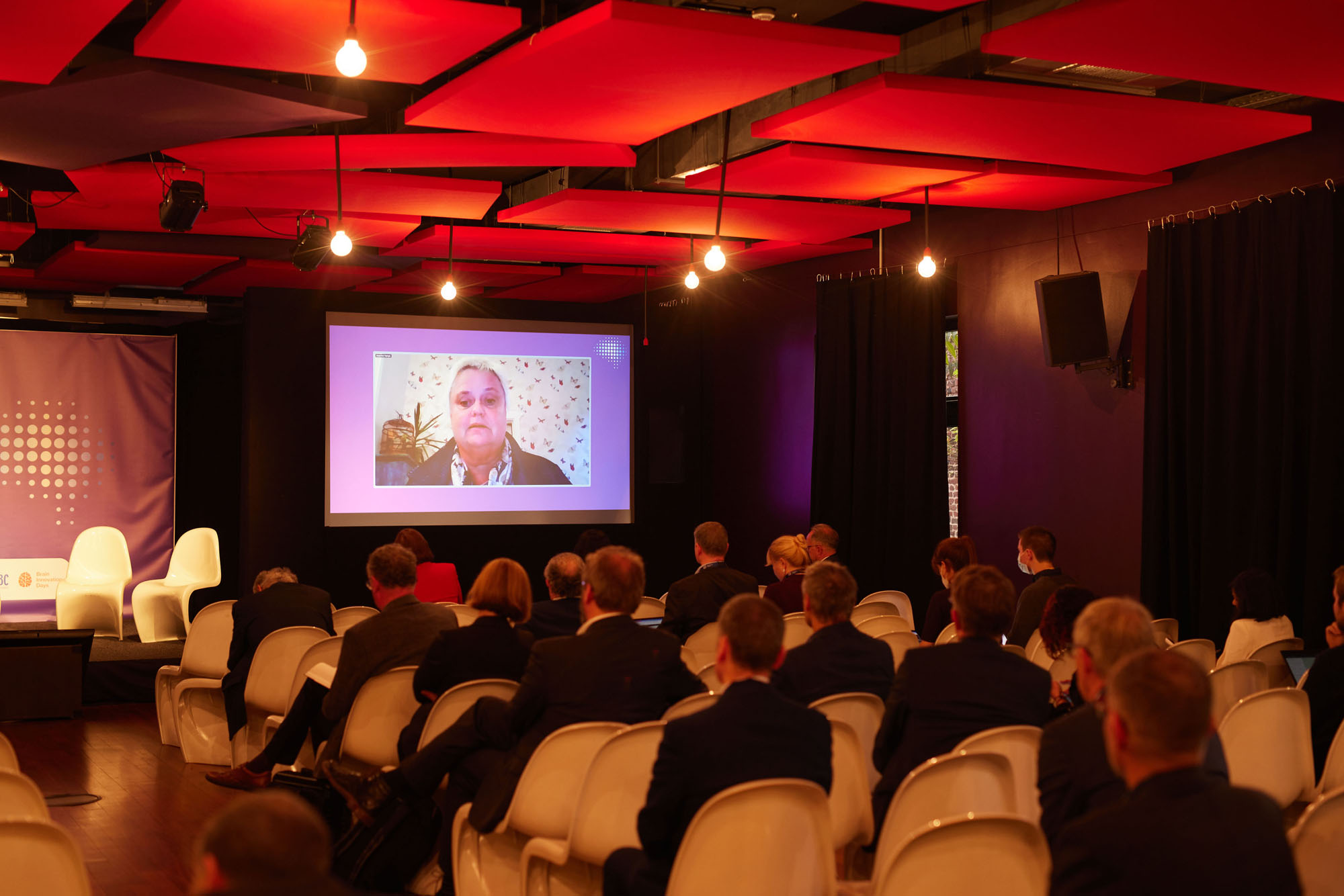
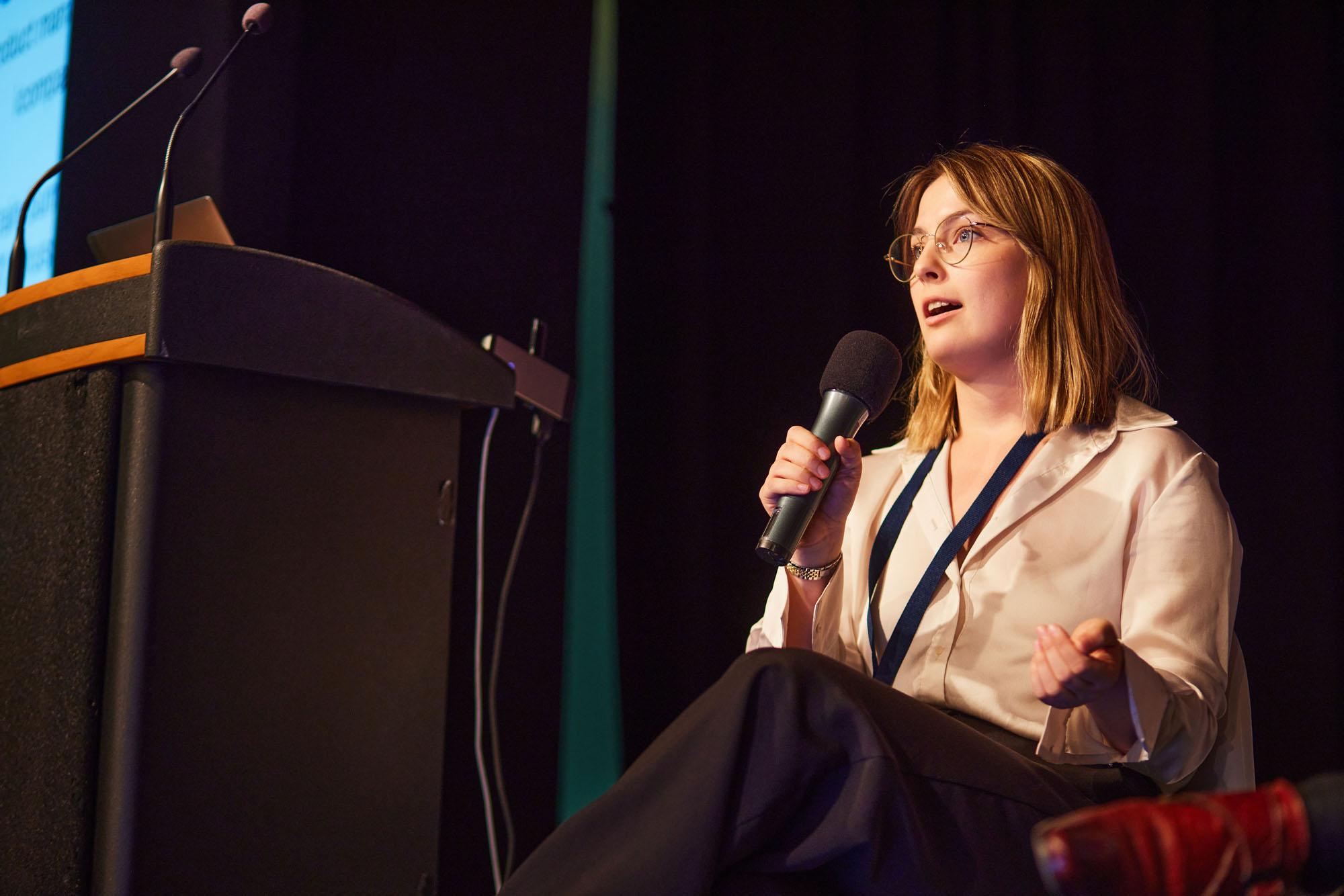
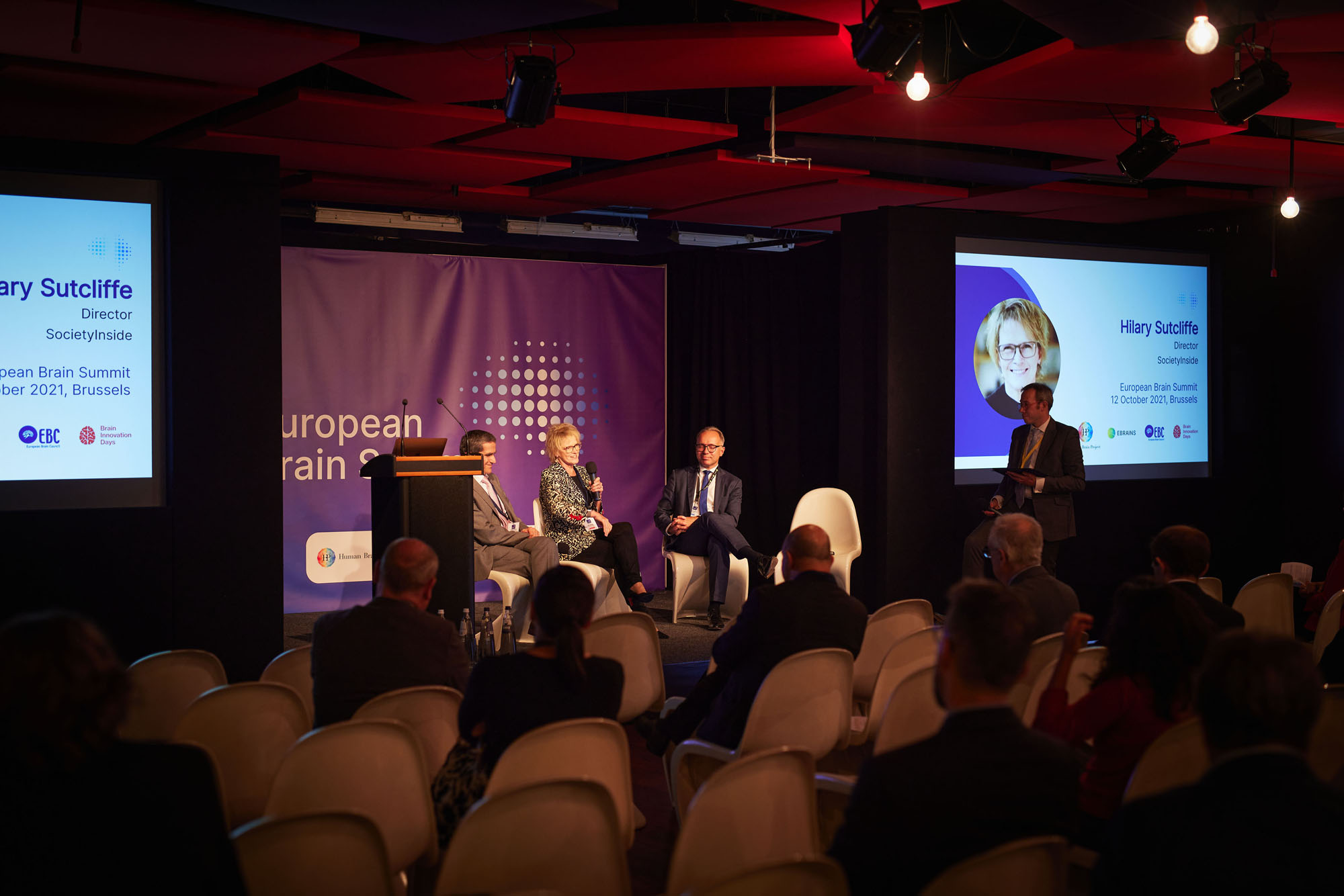
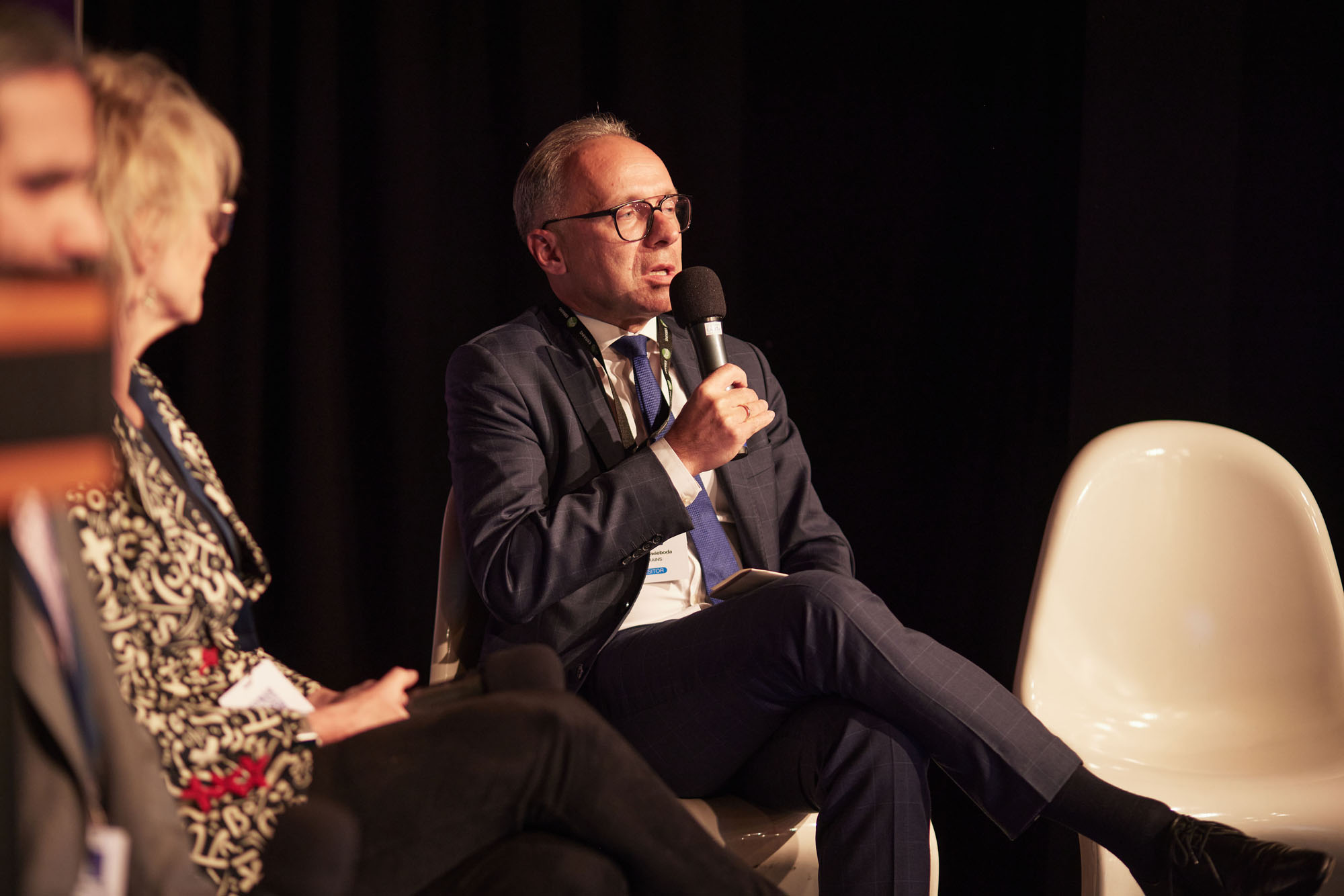

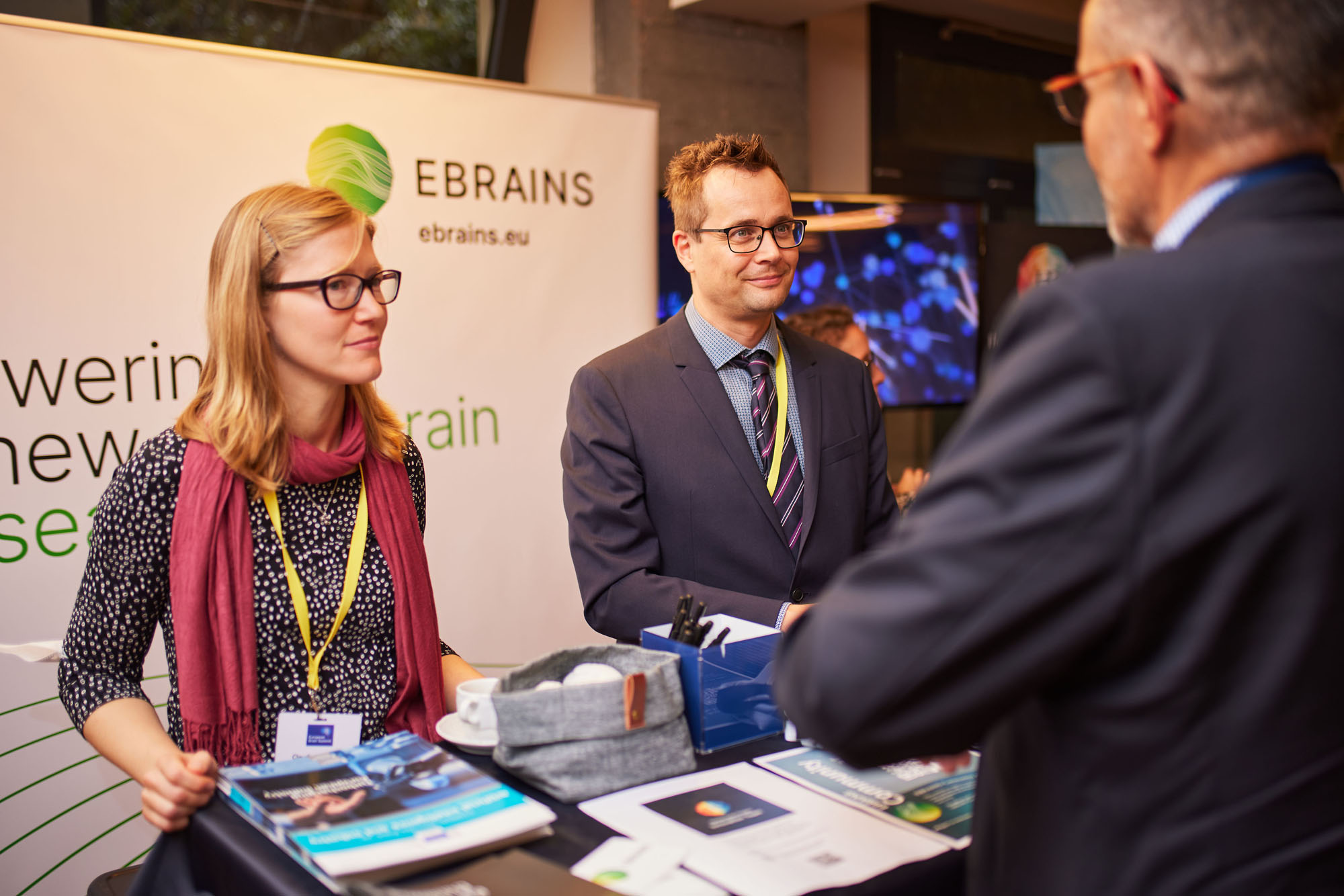
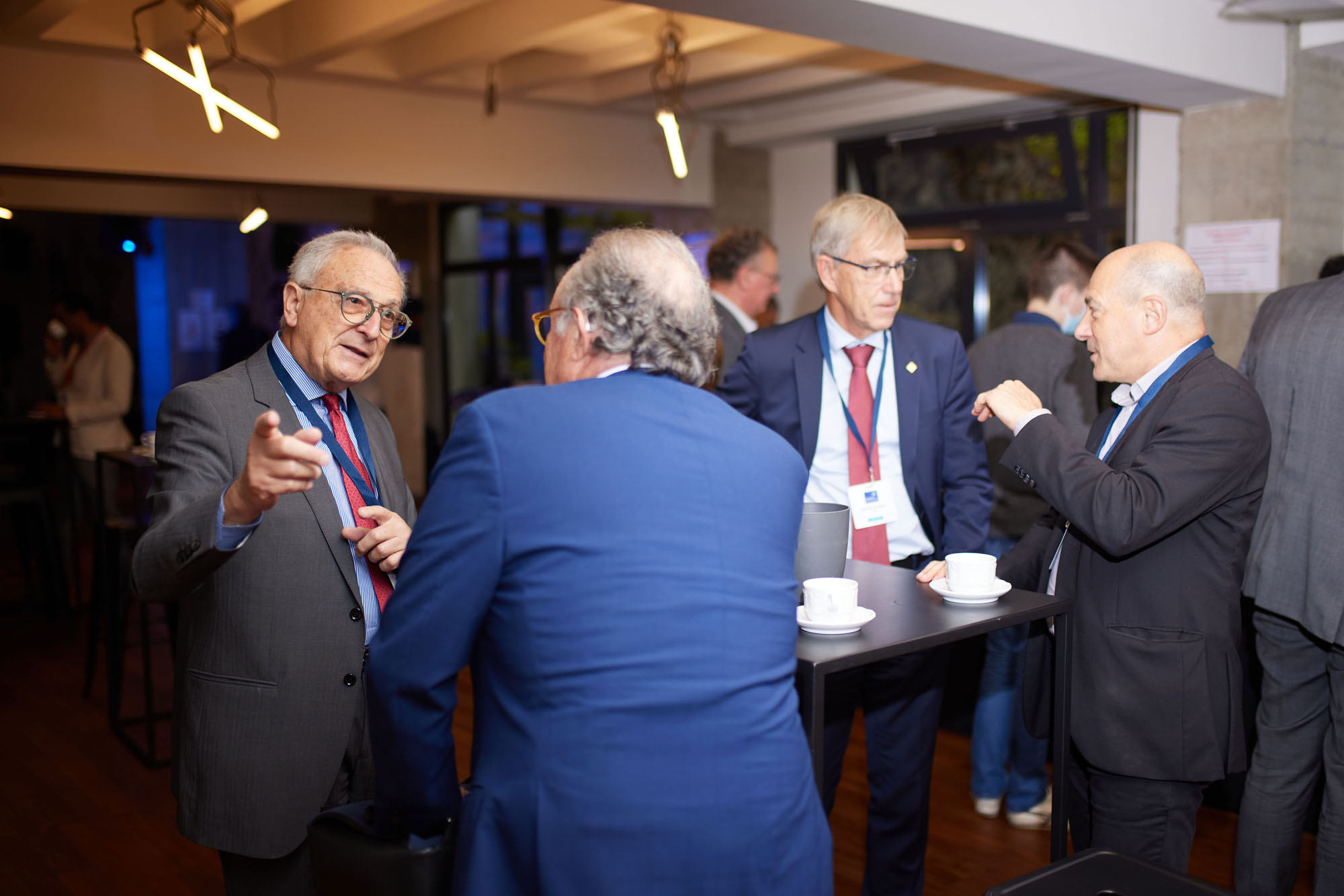
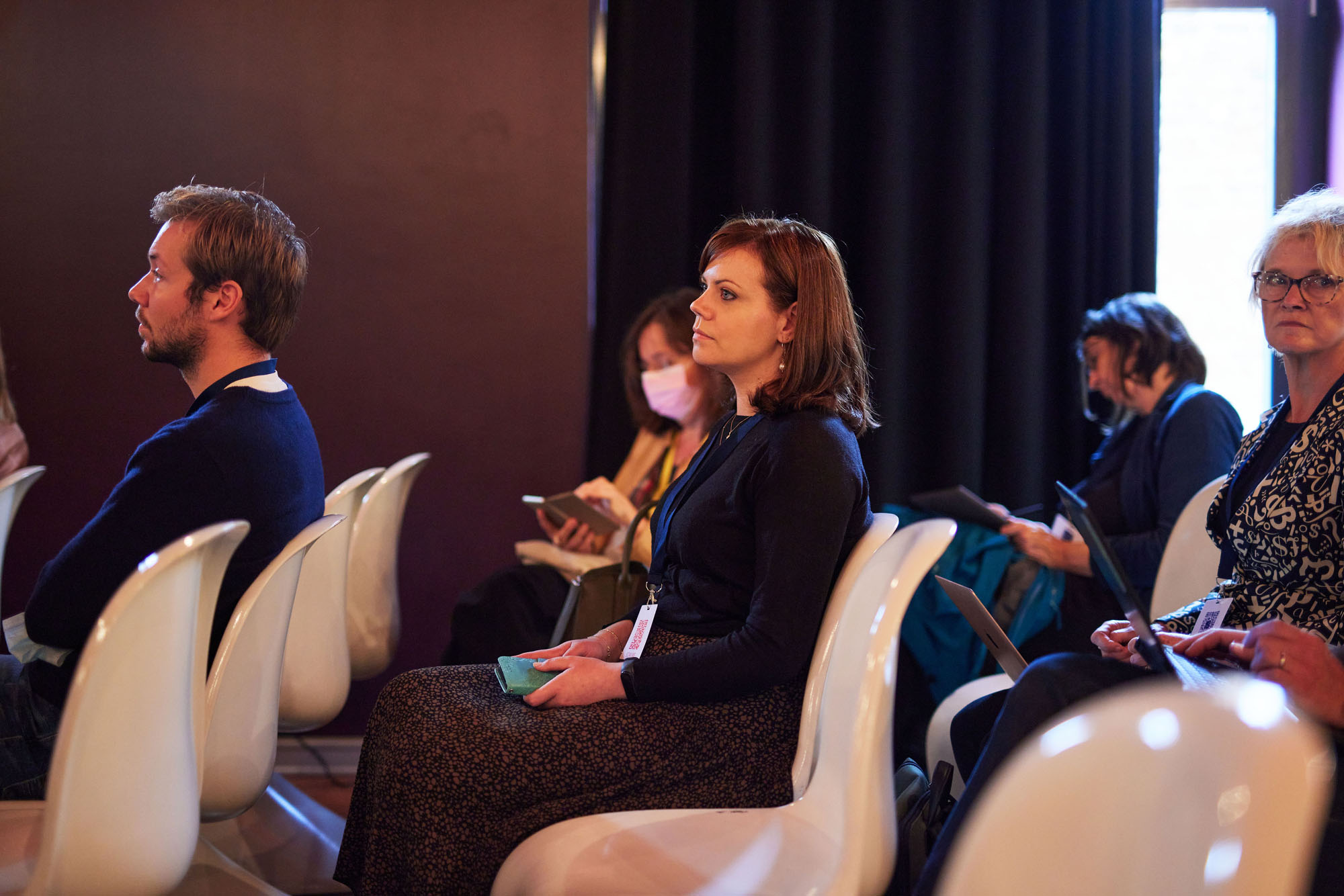
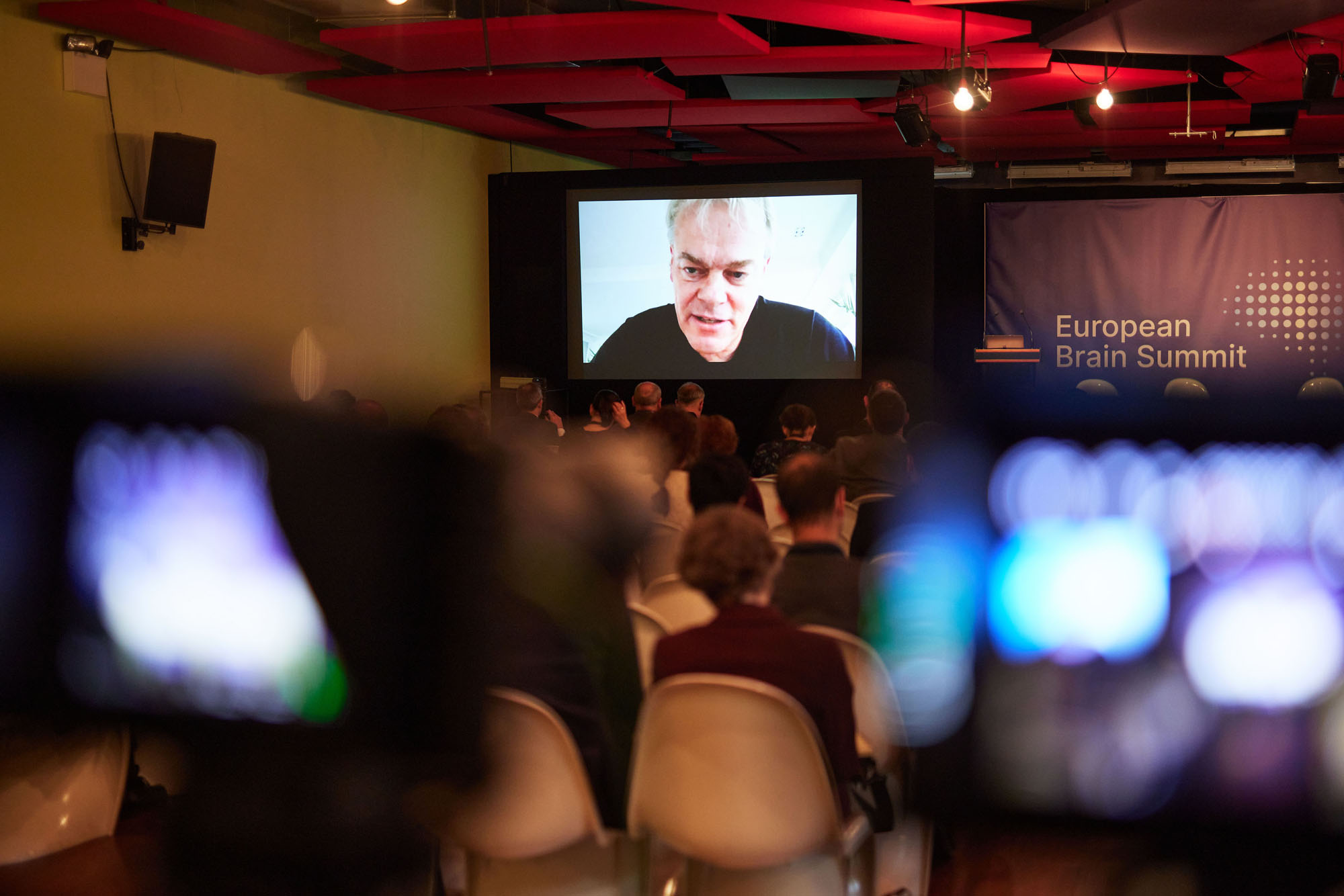
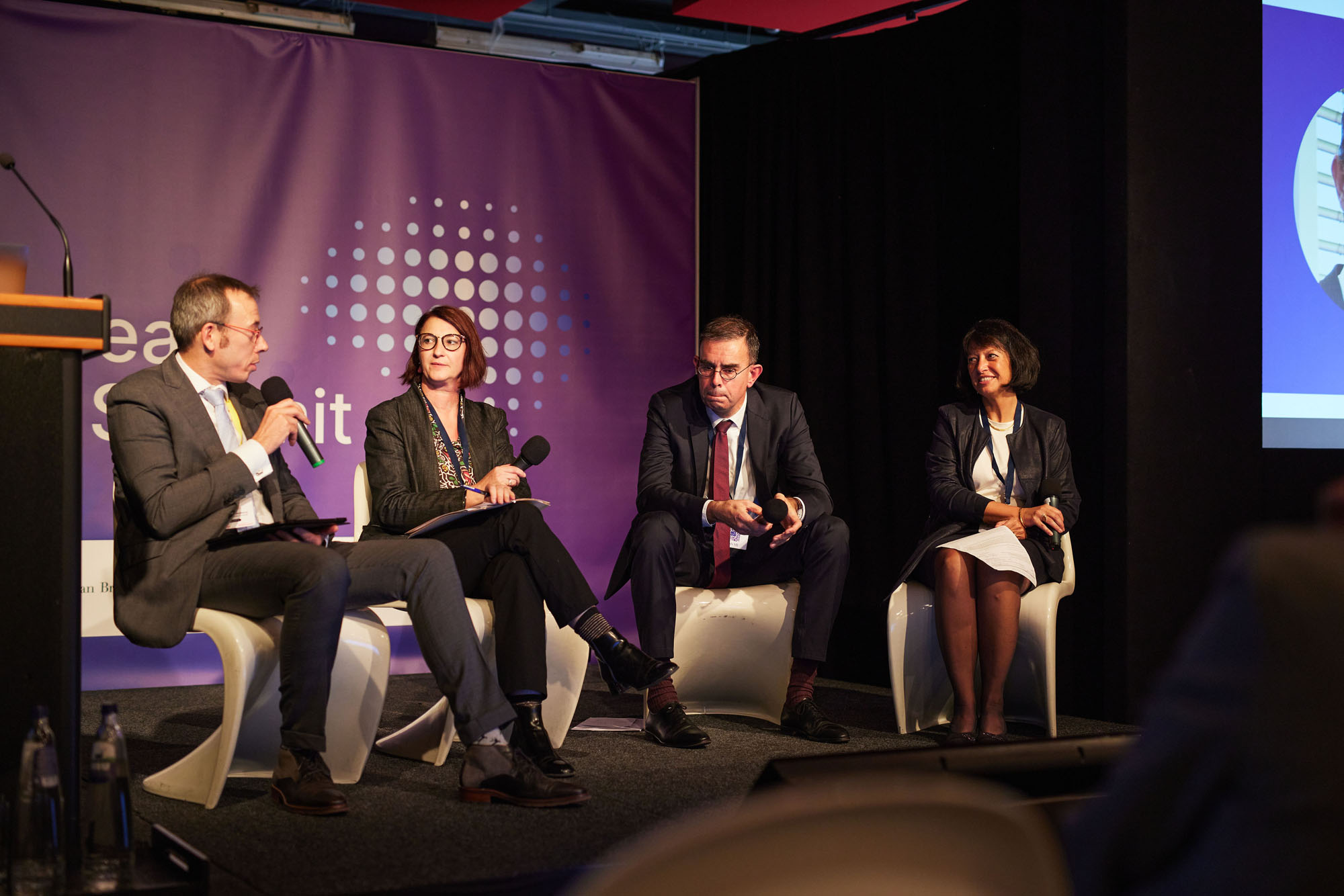
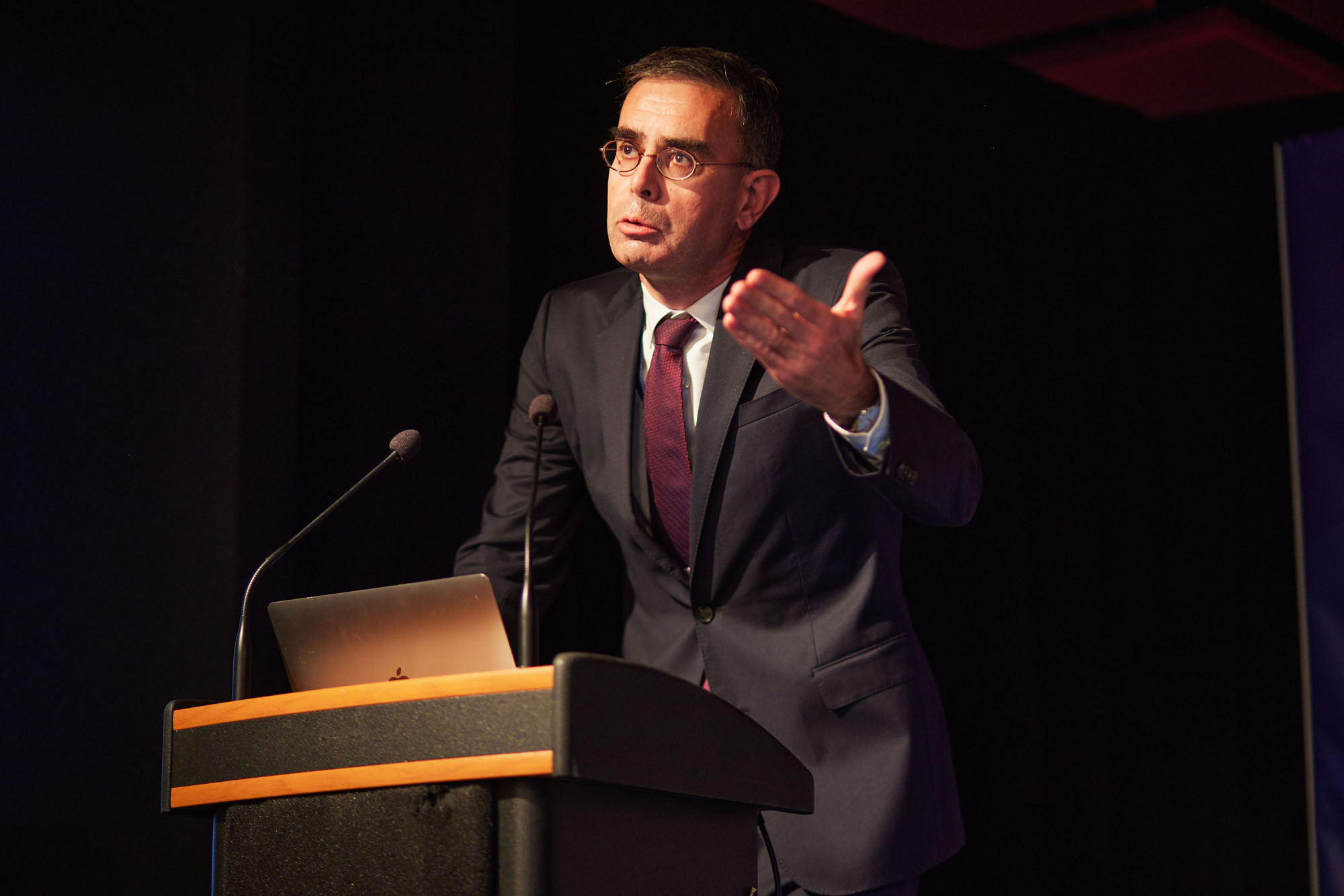
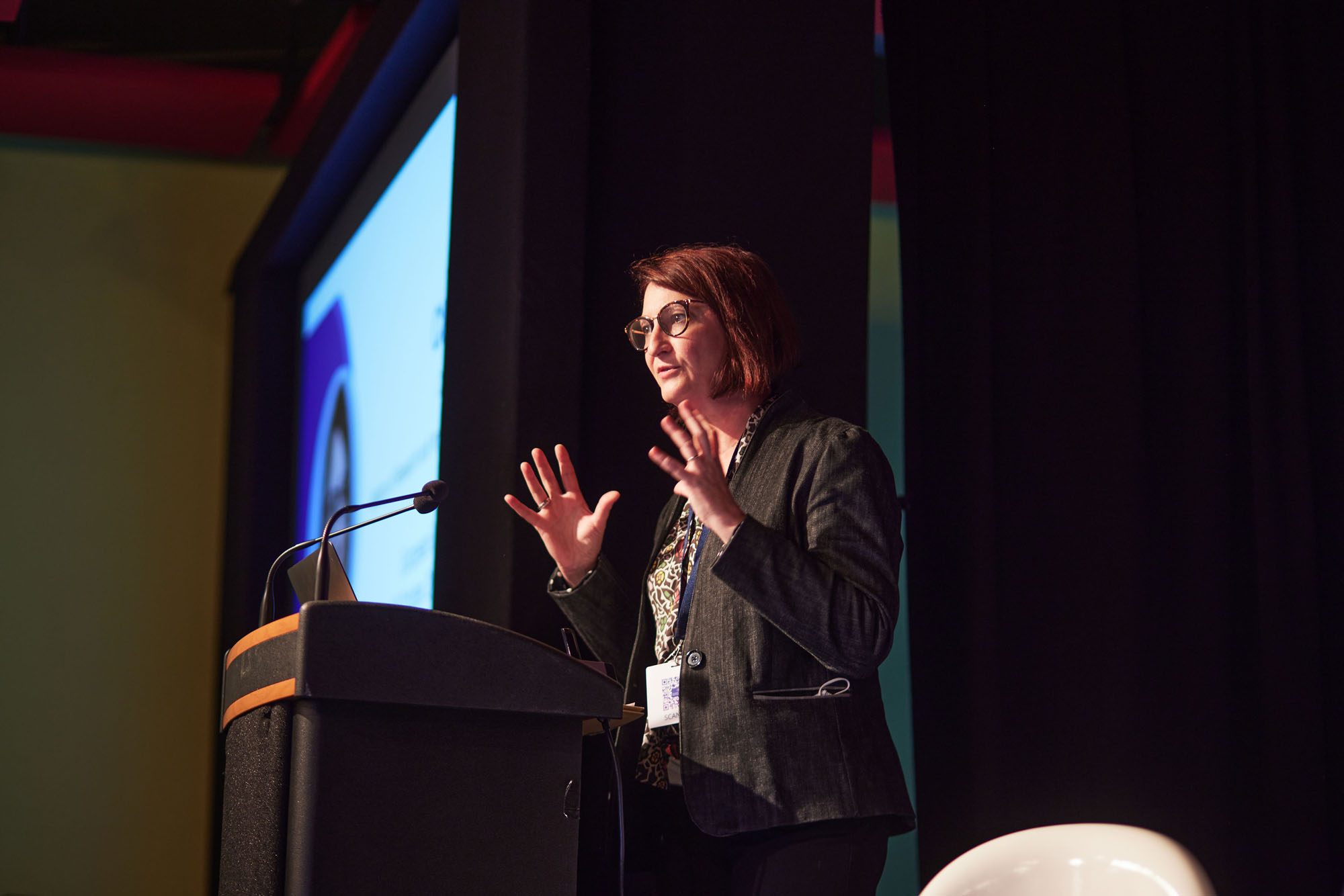

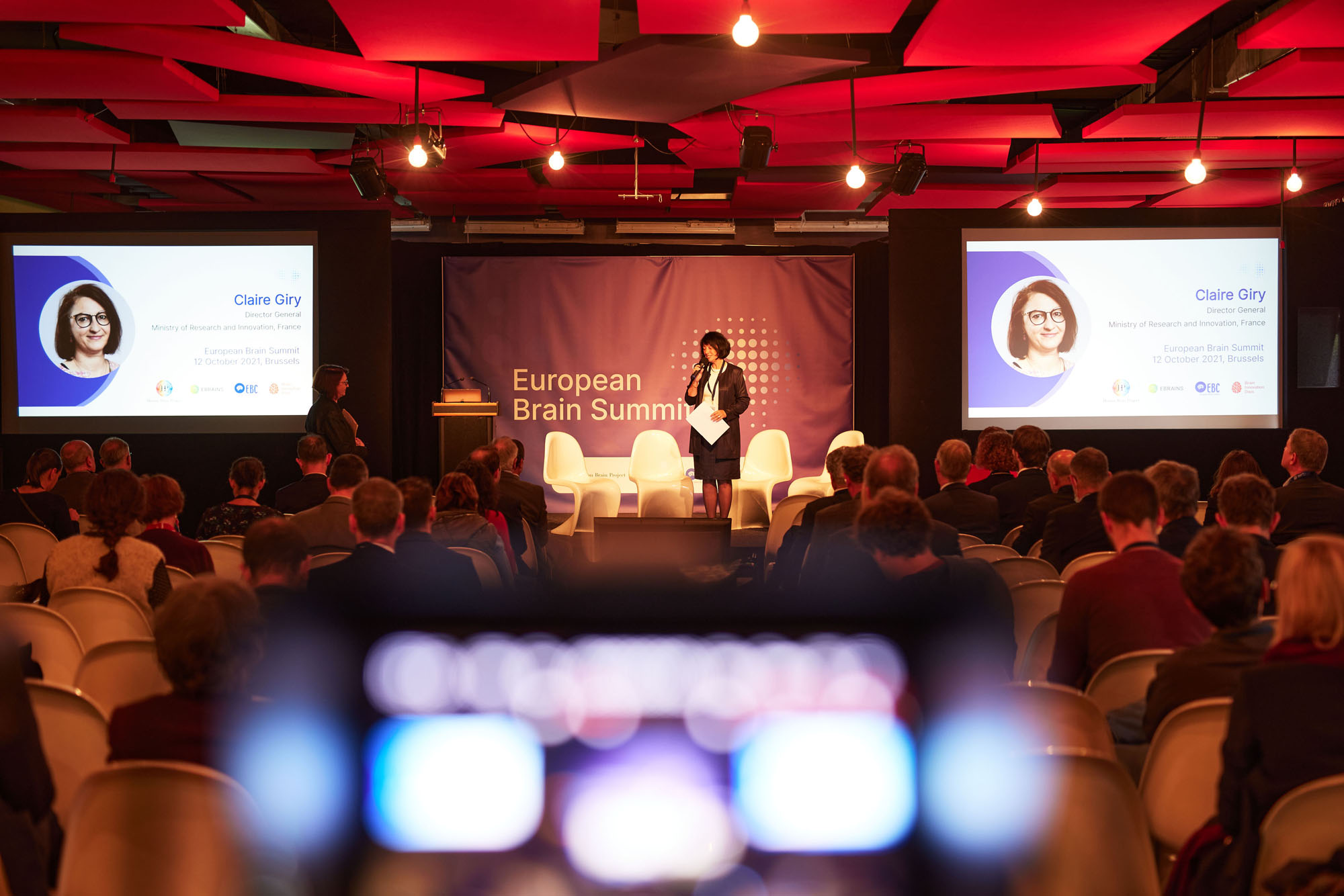
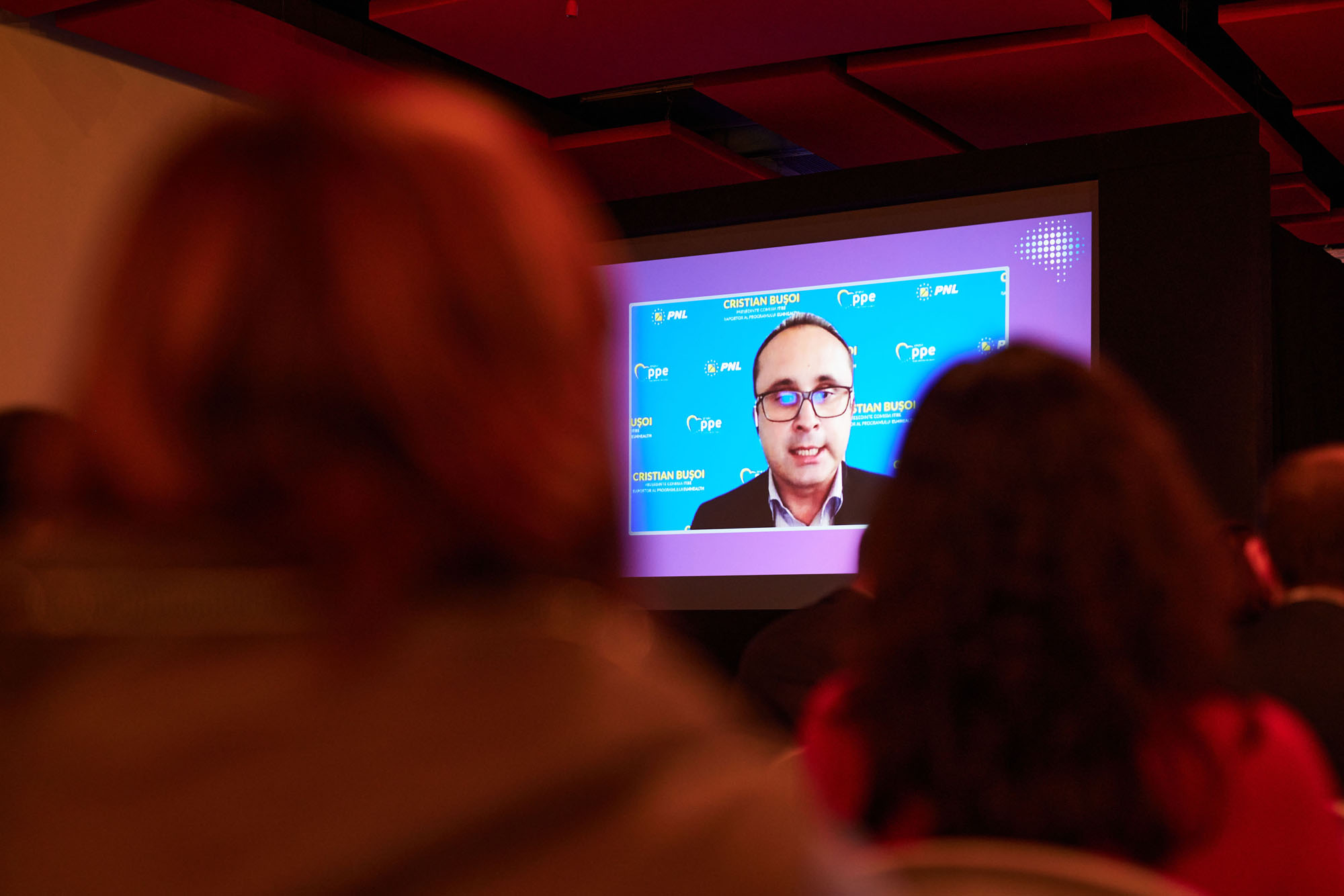
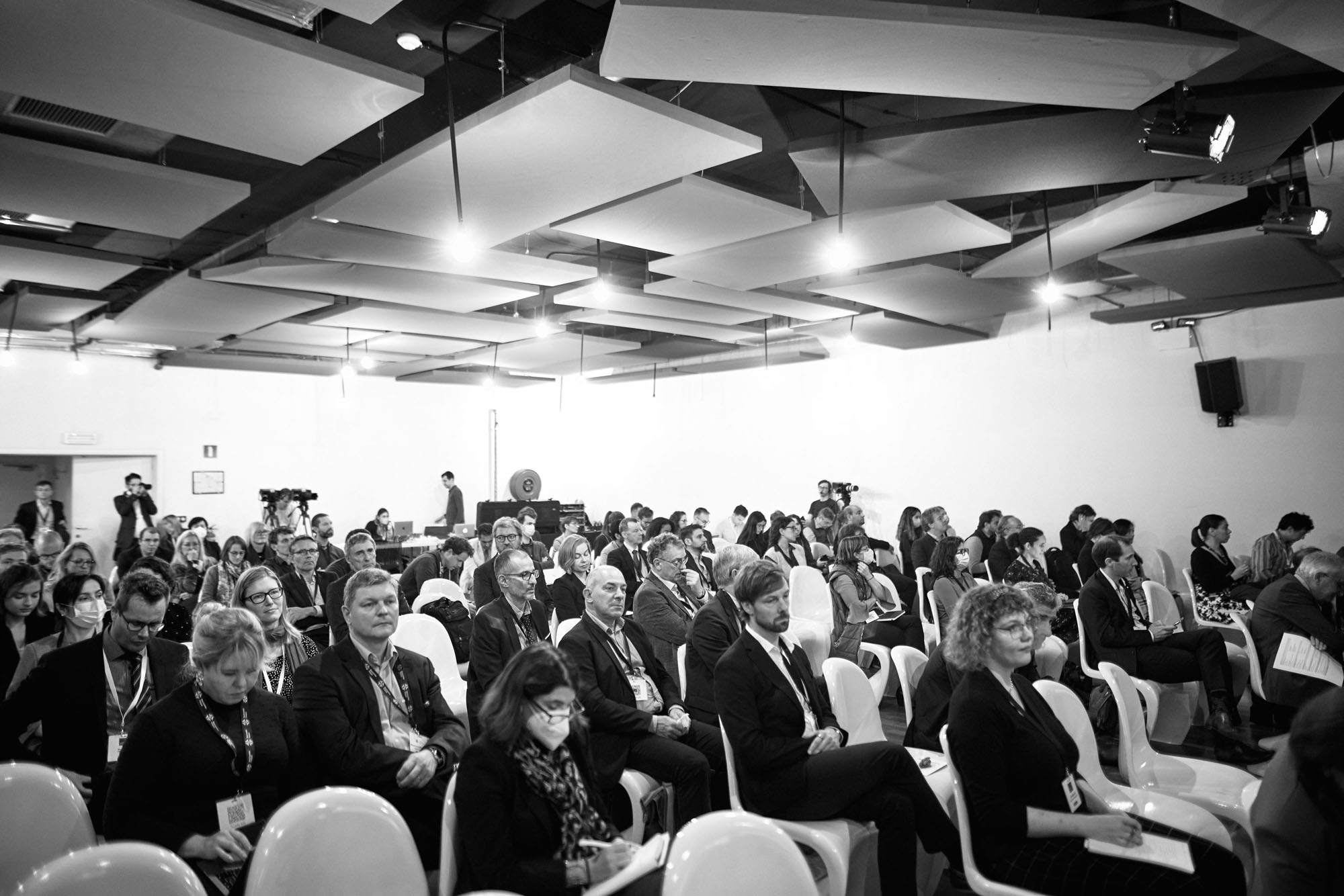
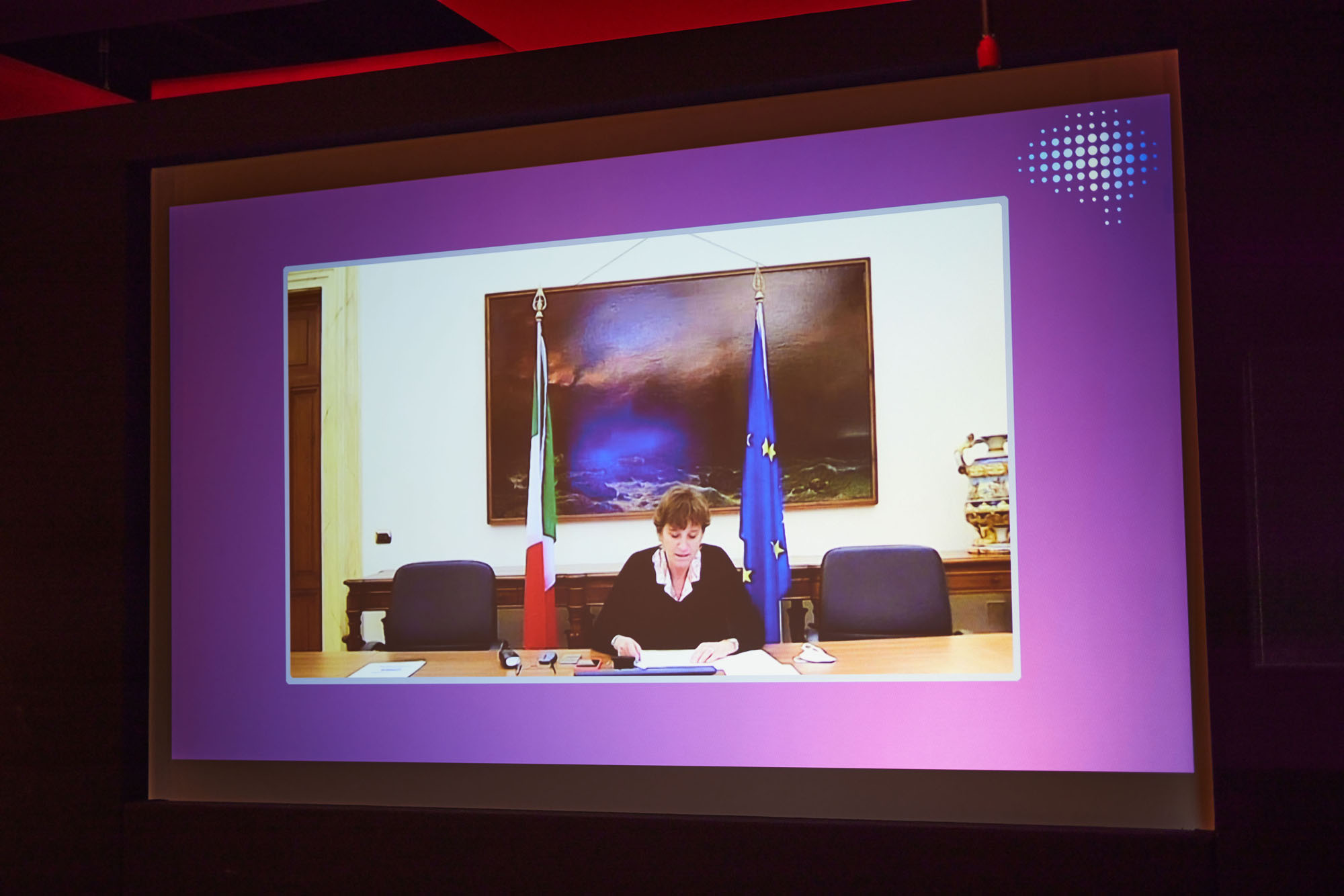
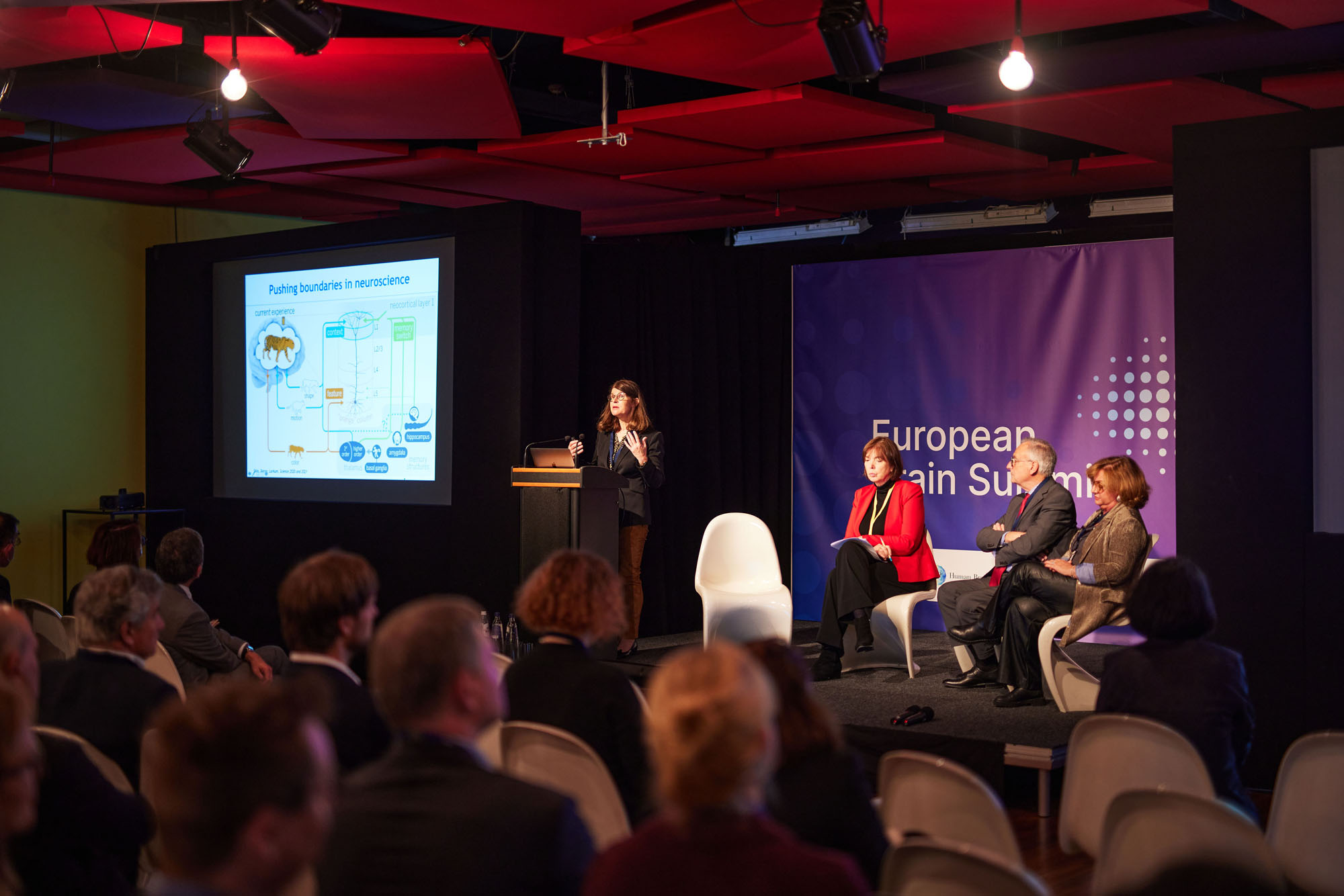
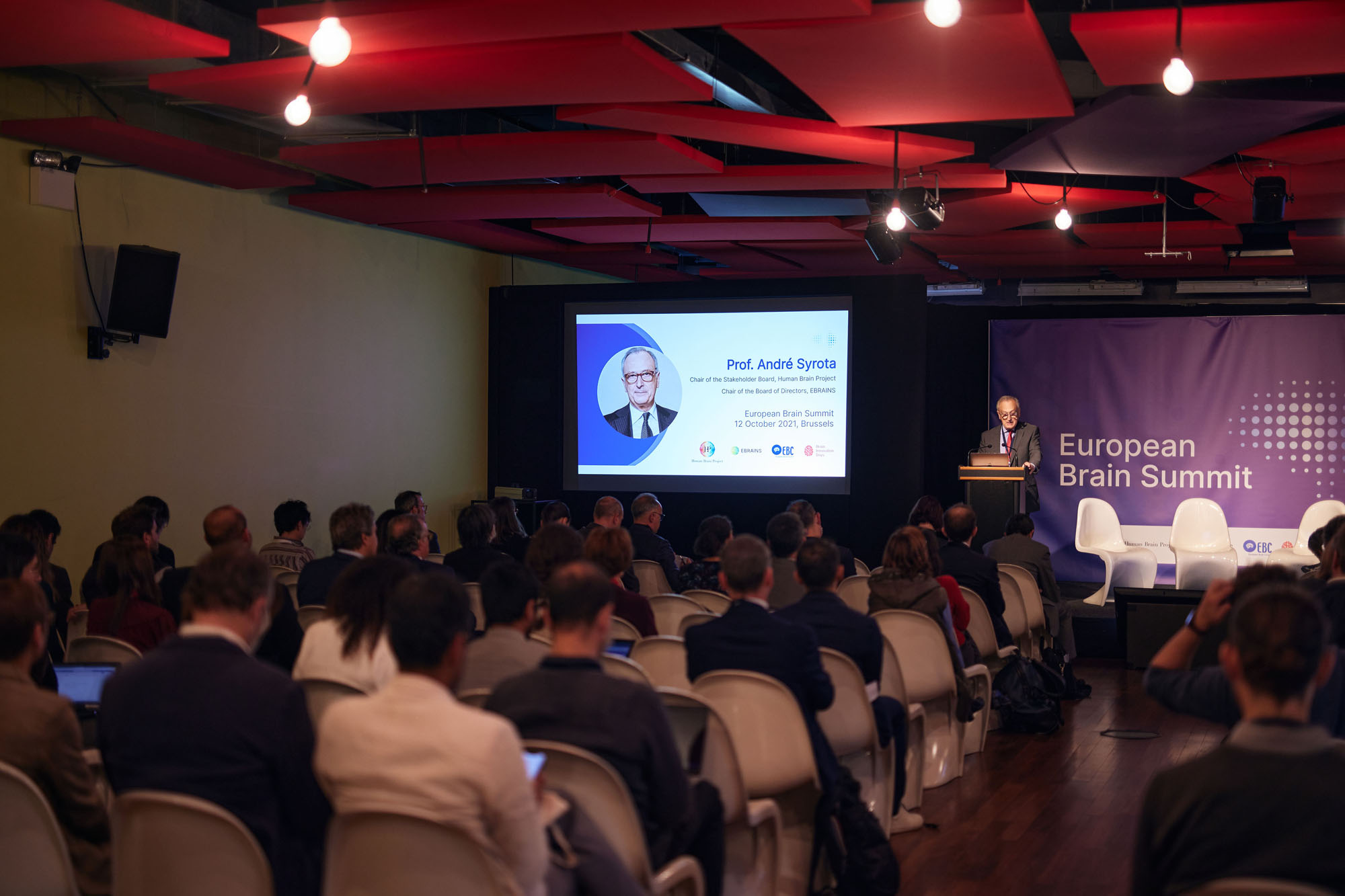
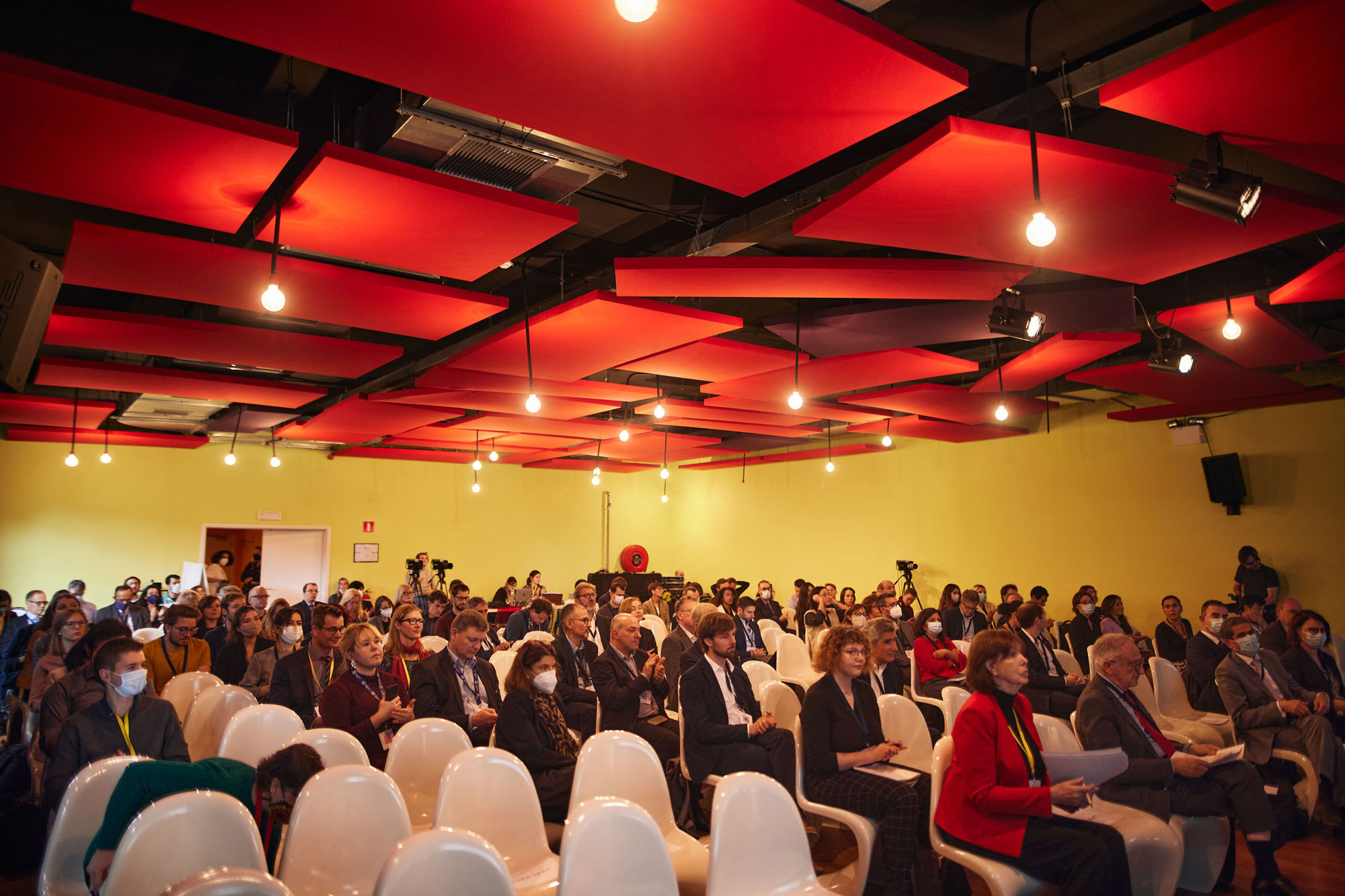
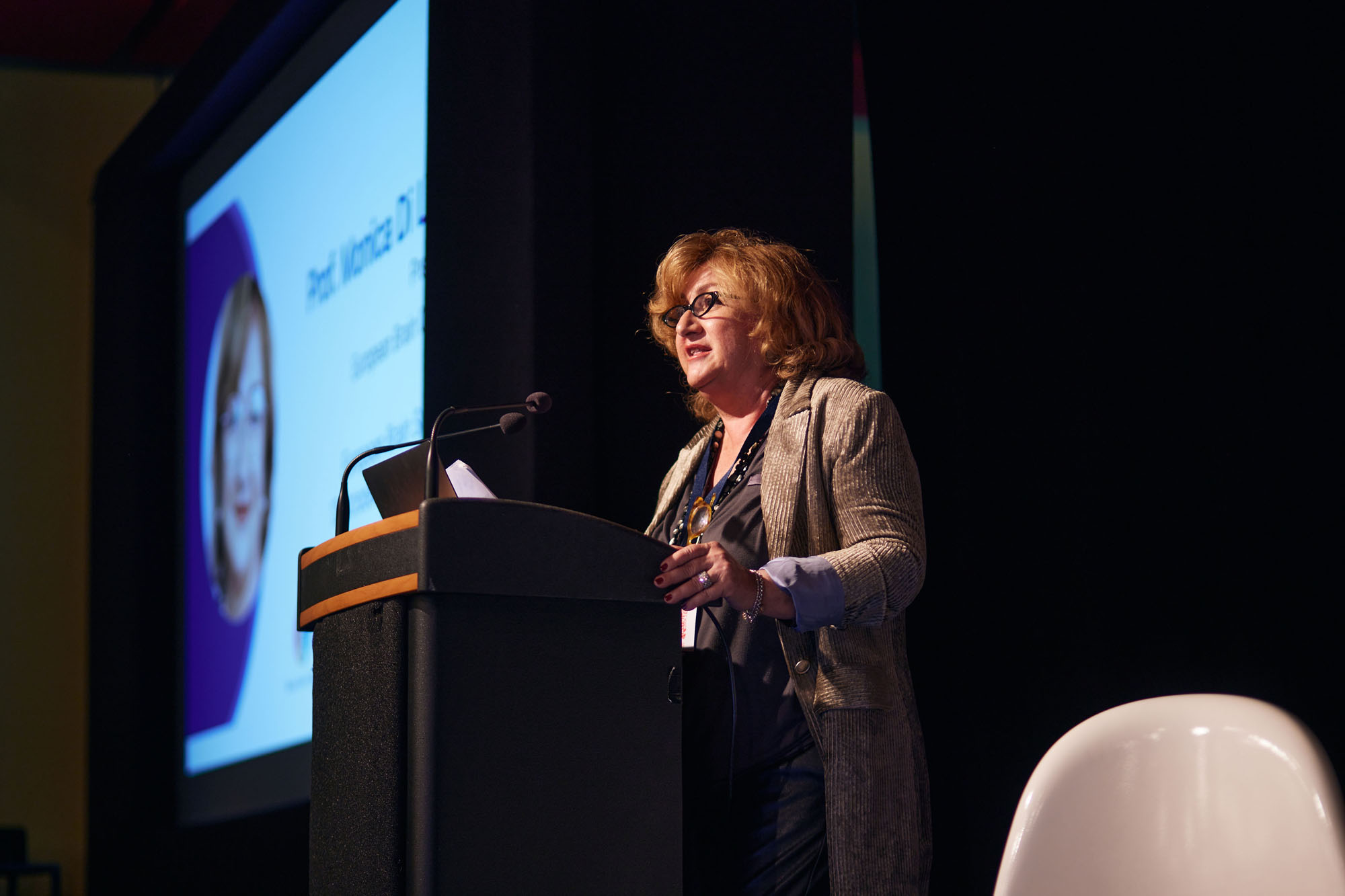

The European Brain Summit in Pictures
Leading researchers and policy makers presented their vision of the future of European brain research. They were joined by a total of 550 registered participants, with almost 200 meeting on-site and a majority following the live stream from across Europe and beyond. Relive the event and have a look at the photo gallery below!
The European Brain Council and the EBRAINS Research Infrastructure held the first European Brain Summit on 12th October 2021 in Brussels (Area 42 – Rue des Palais 46, Brussels 1030, Belgium) from 13:30 to 22:00, in conjunction with the Brain Innovation Days and Human Brain Project Summit.
This was a unique opportunity to explore the challenge of understanding the brain and the role that Europe should continue to play in this endeavour. High-level speakers and experts presented their vision of the future of European brain health research in the context of the European Health Union. New innovative solutions and technological advancements were highlighted.
Our objective was to create a genuine momentum for scientific breakthroughs and policy advancement to the benefit of European citizens.
This unique meeting explored ways of advancing brain research through scientific collaborations, digital innovation, data management and patient centricity.
